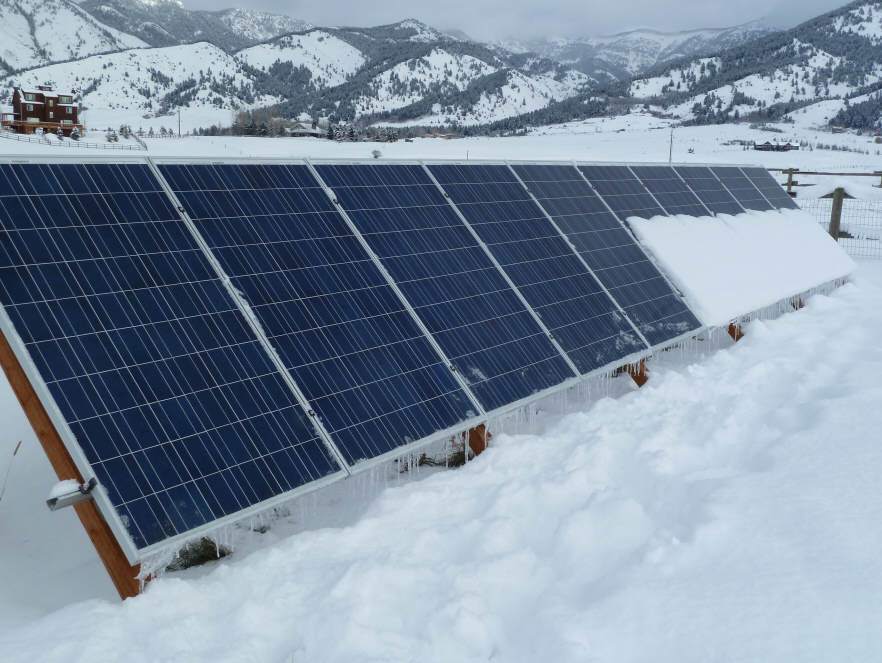Solar Panel Maintenance
The homeowners often worried about solar panel repair and maintenance. Solar panels on the residential roofs do not require a lot of maintenance.
Pre-inspection for solar panels
There is no movable part of the solar system. The homeowner can inspect the roof once a month or week to check dust and debris from trees or birds can stick to panels.
Generally, for solar panels maintenance, everyone needs to adopt safety measures during the pre-inspection.
- If the roof has a high tilted use ladder.
- If the roof is low or your home is on the ground, you can check it from a certain distance with a good angle of elevation while keeping yourself on the ground.
Methods for solar panel maintenance
The most effective and simplest method that you can use, a garden hose and normal resin to wash the solar panel. But the temperature of the water should not be too hot because the tempered glass can crack.
 Furthermore, you can use a simple nylon brush. Floor hard brush is available in every home that can remove dust or debris (tree leaves or a waste of flying birds) easily without any scratches. There are several solar panel maintenance companies available which are providing cleaning services just contact them. Usually, the solar panel maintenance costs is $50.
Furthermore, you can use a simple nylon brush. Floor hard brush is available in every home that can remove dust or debris (tree leaves or a waste of flying birds) easily without any scratches. There are several solar panel maintenance companies available which are providing cleaning services just contact them. Usually, the solar panel maintenance costs is $50.
Snowfall and solar panels
 Many states of the USA have a long winter season with heavy snowfall. During snow, the panels usually have a covering of thick layers of snow. Most of the time, it will melt and fall from the roof, shortly after falling. So for light layer snow, you can install the solar panels at 20 degrees, due to steep surface, the snow will fall by its weight. This phenomenon is called self-cleaning or self-solar panel maintenance.
Many states of the USA have a long winter season with heavy snowfall. During snow, the panels usually have a covering of thick layers of snow. Most of the time, it will melt and fall from the roof, shortly after falling. So for light layer snow, you can install the solar panels at 20 degrees, due to steep surface, the snow will fall by its weight. This phenomenon is called self-cleaning or self-solar panel maintenance.
Online monitoring of your solar panels
 Nowadays, solar panels maintenance is synchronized with the online monitoring system. It is a mobile app connected with a monitoring device. You can observe how much energy is producing by solar panels and at which time interval. In case of any problem, the online monitoring system will give you an alarming message, you have to just call the installer or the company. They will resolve the issues free of cost because for solar panels there is a labor warranty of 10 years and 25 years of product warranty.
Nowadays, solar panels maintenance is synchronized with the online monitoring system. It is a mobile app connected with a monitoring device. You can observe how much energy is producing by solar panels and at which time interval. In case of any problem, the online monitoring system will give you an alarming message, you have to just call the installer or the company. They will resolve the issues free of cost because for solar panels there is a labor warranty of 10 years and 25 years of product warranty.
Protection of solar panels from animals
 Squirrels often like to live under the solar panels because they provide them a warm place. But they cut main wires of the solar panel by using their sharp teeth. So squirrel guard can protect your expensive solar system.
Squirrels often like to live under the solar panels because they provide them a warm place. But they cut main wires of the solar panel by using their sharp teeth. So squirrel guard can protect your expensive solar system.
Squirrel Guard
 The squirrel guard is just like a wall of a metal fence around the panels to protect them from squirrels and birds. It is aluminum fencing coated with Polyvinyl chloride. Its price is just $150/100 feet. Installation is free of cost.
The squirrel guard is just like a wall of a metal fence around the panels to protect them from squirrels and birds. It is aluminum fencing coated with Polyvinyl chloride. Its price is just $150/100 feet. Installation is free of cost.
